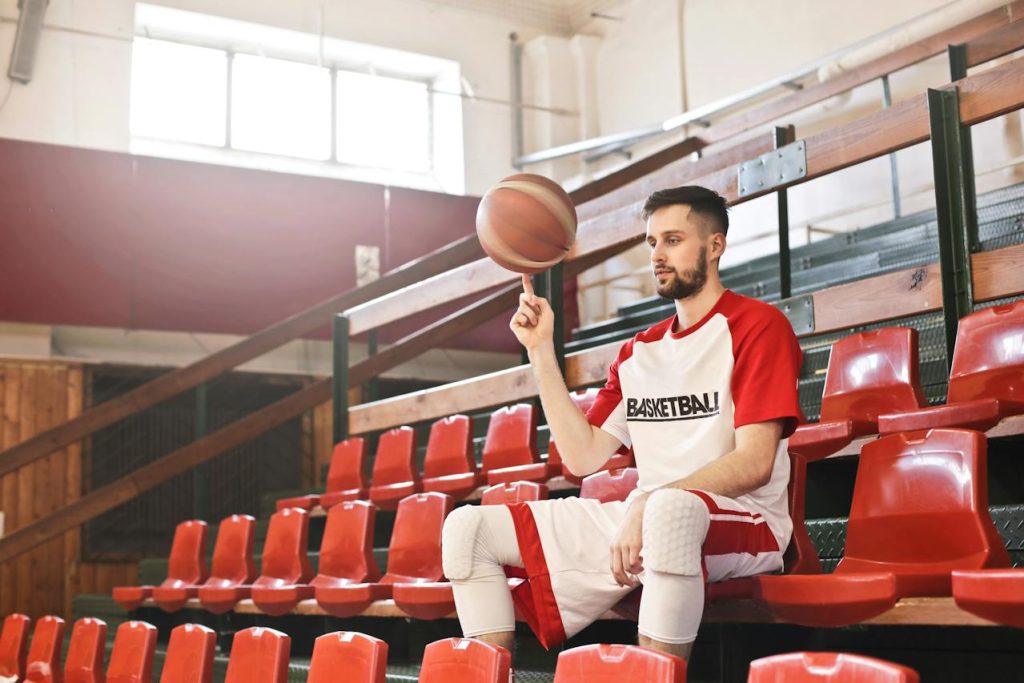Entering a new academic environment after school and applying for college are among teenagers’ best but most stressful experiences. Students already struggle with juggling their academic clubs, part-time employment, and leadership roles when they suddenly have to be good enough for the universities to consider their admissions and enter an entirely different world. Unfortunately, preparing for college is a long-term process, and it requires creativity and patience simultaneously. During this period, students also realize that they have to write their admissions and do a lot of extracurricular activities to make their applications more attractive. If you’re looking for the best extracurricular activities for college applications, we can help you decide and make sure you shine like a star on your future admission essays.
Balancing Academics and Extracurriculars for College Readiness: Know What You Need
Understanding how your college admissions will be processed and how your academic input and other responsibilities will combine is vital. Here are some things that will be important before your extracurricular activities:
- GPA
- Course rigor
- Standardized tests
Only after considering these will the committee evaluate students’ extracurricular activities. The academic community is large, and people with relatively similar scores will have a great chance of being chosen if they show an impressive list of internships or a great athletics record (depending on where a learner applies). Students often get chosen due to the Academic Index, which evaluates their abilities against all the other college admissions.
The data shows that the extracurricular side of the efforts accounts for a small percentage of the final admissions decision. Nonetheless, it is still significant.
Navigating extracurricular choices: Tips for high school students with limited time
When you decide to apply for a college, it’s important to understand that your time is limited. That’s why you won’t be able to combine community service, artistic pursuits, and internship experiences all at the same time. It’s better to plan your extracurricular activities for at least a year or even two if you can afford it: this way, you will do what you like and also make sure you can organize your life around the things you like. Write down a list of the things that you like the most. Write another list of the things you already do. Then, scribble all the things that will be useful for college admissions. Look at these three lists and think about where they align. Your extracurricular strategy should be smart and achievable. Begin with the things you already do, and if you’re overinvesting into something, try to cut these features down.
Academic clubs and teams: Enhancing your profile for a better future
Most college admissions will specifically concentrate on your abilities as a learner and your academic achievements, so make sure to prioritize it.
- Join academic clubs based on your interests or the field you hope to pursue.
- Become a team captain for a specific discipline.
- Join national competitions.
- Lead weekly workshops dedicated to your future professional practice.
Identifying Impactful Extracurricular Activities for College Admissions: Tiers
Students looking for the best extracurricular activities for college applications should be aware of the four tiers of extracurricular activities that will impact how the college committee perceives their achievements. They demonstrate the priority that every approach will be perceived during college admissions. It can help you design your extracurricular strategy.
Tier 4. This tier contains the most common extracurricular activities that students often have. For example, if a student did any community service in a local charity kitchen or had athletic participation in any school team, from running to football, it would be on tier 4. Here, students will also place their part-time employment if it was not marked by a leadership position or any specific breakthrough. If you’ve ever been in any academic clubs or have any artistic pursuits, they’re also labeled as tier 4.
Tier 3. This one is more associated with similarly important activities, but they are higher on the admissions committee list because they often involve a leadership role. For instance, if you were a president of a speaking club, had part-time employment as a low-position leader, or had some internship experiences, it would be higher on your list.
Tier 2. This category noticeably steps up on your list. If you participated and held one of the top places at a local regional competition, such as a National High School Ethics Bowl or, let’s say, UCA Regional Cheer Competitions (if you’re more into athletics and not creativity or ethics). It will already be quite noticeable on your list, and most college admissions will gladly consider this factor.
Tier 1. This category holds the most exceptional extracurricular activities you could imagine on a national level. For instance, if you won the Conrad Challenge or NATIONAL ACADEMIC LEAGUE (on a national level) or were a nationally recognized athlete. The same can be said for any creativity and volunteer activities: they should be unique and extremely difficult to repeat, including being the creator of a nationwide foundation or organization.
Community and Professional Leadership and Teamwork: Extracurriculars That Make a Difference
It’s not a secret that today’s society is fascinated by people who can be great at leadership and show creativity and dedication to the things their peers are not ready for. Every academic community is very dependent on a great leader; in many cases, students who are not the best in their academic clubs but can acquire different leadership roles become more popular and in demand as learners and professionals.
Some of the examples are here:
5. High school leadership in Doctors Without Borders.
6. A leader, president, or supervisor of any artistic pursuits’ clubs, including painting or music.
7. A leader on any level in organizations such as Amnesty International or any local one.
8. A member of the student council or board or a team captain.
Learn about the role of internships in college applications
Internship experiences have a great role in students’ admissions because, unlike academic clubs or community service, they reveal the professional abilities that quite a few high school learners have. They also show that a person is already confident enough to work for a particular company and even improve their leadership abilities.
Writer Tony Lewis comments, “When evaluating other people’s college admissions, I often add information about the internship. For some reason, people think that it is not as important as paid leadership roles or volunteer work, but it is a great demonstration of the person’s practical skills.”
9. Internship for a local company.
10. Volunteering for any organization.
Part-time jobs: Demonstrating responsibility and work ethic for your application
A great way to gain money, experience, and better leadership skills for your college admissions is to do a part-time job. It gives you a chance to balance your work and learning while also letting you keep the finances in check. Also, a lot of students put this money towards their college funds, which will help them partially alleviate their financial burden. You will also show an academic committee that you are ready to act.
11. Work in a post office.
12. Apply for a position at a cafeteria or a restaurant.
13. Work in the library.
14. Write something or tutor younger students.
Community Service and Volunteering: Building a Strong Application for Your Future
It’s no secret that the college committee loves it when students give back to their community. That’s why it is important to include any volunteer work that you might have, from helping dogs in a local shelter to collecting money for a specific group. Community service and volunteer work are seen as great features from a person’s perspective: the college will see that their applicant is serious about community help and is ready to volunteer without being paid.
15. If you’re interested in doing something nice, consider joining any local nonprofit organization or even creating your own.
16. If you love movement and athletics more than sitting in place, you can organize a community garden or charity training sessions in a sport of your choice.
17. Don’t forget to help in nursing homes or food banks.
18. If you like learning but want to go further than simply joining academic clubs, you can support your library or a museum; there is always something to do.
And the best thing about volunteering is that you can let your creativity and leadership loose!
Creative and Athletic Pursuits: Showcasing Your Unique Talents and Hobbies
Some students who focus on more creative or sports activities are more likely to emphasize their athletic participation or artistic pursuits in their college admissions. Nonetheless, the reality shows that you can demonstrate great leadership or teamwork abilities as a part of the soccer club or help your local artistic community. As a result, combining even the most unexpected features of your life and hobbies into one “student profile” is a great way to diversify your application.
Remember: Art and sports don’t require you to only think from a narrow perspective. Instead, use these features on your college application to demonstrate how you can be a great team player. It’s very likely that you’ve already tried and joined some of the clubs. Your athletics can be shown through these activities:
19. A team manager.
20. A high-level player.
21. A volunteer in an organization.
22. An athlete in the junior league.
If you’re an artistic person, ask yourself: did you win any creative competitions? Did you help any artists in establishing their exhibitions? Did you have your own? Perhaps you were a tutor for the younger students?
23. Organizing competitions or exhibitions.
24. Having one’s own exhibition.
25. Winning a competition.
26. Teaching other students.
FAQ
1. What are the best extracurricular activities for college applications? There’s no singular answer to this question because everyone is different, and their college admissions reflect their own abilities. Despite this, the best things you can show in your college application involve leadership roles or community service. If you had an experience that was unique and cannot be imitated by the other applicants, include it in your application as well. Do not approach an overly diverse strategy; instead, think about the ways in which you can showcase your prior activities in relation to your college pursuit.
2. How do extracurricular activities impact college admissions? Extracurricular activities are not the most important thing in your college application because your general performance scores will take priority. However, when two applicants with similar scores have a dissimilar list of activities, it can affect the committee’s decision. Make sure to show your learning abilities through academic clubs or any other option that would showcase that you are serious about higher education.
3. What types of leadership roles are valued in college applications? All leadership roles are valuable, but the ones that will prove your ability to work with diverse teams or require the most investment would be noticeable more often. To specify, your application can win if you show your leadership in helping the community, especially in volunteer work. You can take an unexpected turn and work on athletic participation (perhaps you were the captain or manager). Similarly, internship experiences can appear quite impressive for the people reviewing your application.






